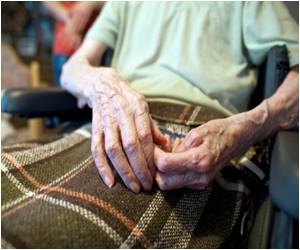
‘A new study identifies the health gap between black and white Americans which can help policymakers to address the challenges facing lower-income Americans of all races to close the health gap.’
Tweet it Now
The researchers examined a host of reasons and determined that socioeconomic factors--notably income and educational level--influenced the differences in health behaviors between the groups more than other variables, such as an individual's emotional state or the neighborhood in which one lives."The gap in education and income are the critical causes," says Whitaker, corresponding author on the study, published in the American Journal of Preventive Medicine. "We are arguing here that our societal structure makes it more challenging for black Americans to have the same level of socioeconomic status as whites. This study highlights the profound impact of socioeconomic factors, which are mostly beyond an individual's control, on health behaviors."
She recommends policymakers address the challenges facing lower-income Americans of all races to close the health gap.
"Making the same educational opportunities available to low-income individuals, regardless of race, would be a great starting point," Whitaker says. "A lot of people born into poverty have less opportunity to go to college, for example. That's one area that could be addressed."
The researchers analyzed data from 3,081 black, and white Americans who enrolled in a 30-year (1985 to 2016) study by the National Heart, Lung, and Blood Institute called Coronary Artery Risk Development in Young Adults (CARDIA). The data were classified into three areas to try to explain the difference in cardiovascular health behaviors between the groups:
- Socioeconomic factors, including income, education, net worth, employment status, difficulty paying for basics, home ownership, and health insurance.
- Psychosocial factors, including depression, racial discrimination, stress lasting six months or more, mental and physical quality of life, and hostility.
- Neighborhood factors, including neighborhood poverty, racial or ethnic segregation, neighborhood cohesion, and neighborhood resources.
The study was unique in that it incorporated multiple factors that could affect racial differences in health behaviors. Also, the researchers examined health behaviors, such as diet, smoking, and physical activity, together rather than separately as many previous studies have done.
Advertisement
"The race disparity in health behaviors starts very early on," Whitaker says. "This is attributable to factors such as education level, which may not be under an individual's control."
Advertisement











